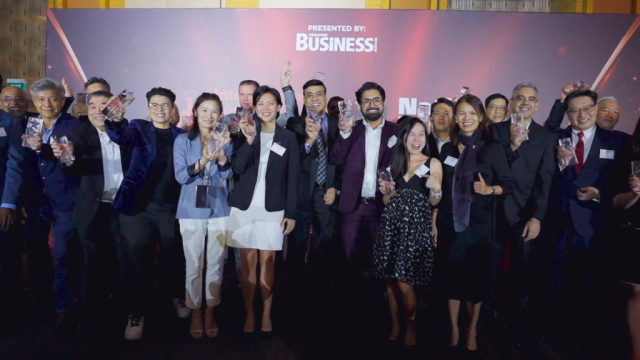
Big 4's reaction to the Budget: What you need to know
Did their Budget 2014 wishes come true?
KPMG:
According to KPMG analysts and experts, Budget 2014 demonstrates the Government's commitment towards addressing feedback from all segments of society. Tham Sai Choy, Chairman of KPMG Asia Pacific and Managing Partner at KPMG in Singapore said they applaud the Government’s efforts to expand our social safety network for those in need. KPMG has been pushing for the PIC scheme to be liberalised for SMEs. Tay Hong Beng, Head of Tax, KPMG in Singapore said, "It is great to see that the Government has taken this into consideration with the introduction of PIC +. We are happy to finally see a tax incentive specifically tailored to the needs of SMEs. The PIC+ scheme is a good step forward to provide the necessary support to encourage equipment and technology investments for longer-term and more sustainable business performance." Here are more reactions from KPMG:
Tham Sai Choy, Chairman of KPMG Asia Pacific and Managing Partner at KPMG in Singapore:
This year's Budget is focused on the right areas: improving productivity and encouraging innovation. Only Singapore companies with strong brands can fully capitalise on the rapid growth in Asia.
Harvey Koenig, Tax Partner, KPMG in Singapore:
The extension of the PIC scheme and R&D tax incentives are important measures to continue support of the economic restructuring of Singapore. However, the cash payout limit was not increased, and this may not provide sufficient support for cash-strapped innovative businesses.
The renewal of the R&D tax incentives provides strong long-term support to businesses to build and strengthen capabilities, develop new products and services and improve existing ones.
Chiu Wu Hong, Tax Partner, KPMG in Singapore:
The extension of the additional 50% tax deduction for R&D is a welcome move as this is a strong indication that the government is looking at long term goals for supporting innovation in the industry. We are pleased that the government is able to appreciate that innovation is essential for sustainable economic growth, and that R&D efforts are progressive and may require a longer ramp up period.
The Minister has just announced a new, enhanced PIC Plus scheme for SMEs which will run until the YA2018. In this scheme, SMEs (from YA2016 to YA2018) enjoy a greater expenditure cap of $600,000 per YA, up from the current $400,000 per YA. This means that SMEs can enjoy a higher combined cap of R&D expenditure of $1.8 million over 3 years, from YA2016 to YA2018.
Lyon Poh, Partner, Management Consulting, KPMG in Singapore:
The continued focus on ICT investment to enable transformation is critical as businesses can expect to reap more benefits of maturing technologies which were in their infancy 3 years ago. These include mobility, data analytics and cloud. The various funding and incentive schemes to encourage adoption of ICT to transform business are helpful, especially for SMEs which lack the means to invest for future.
BJ Ooi, Tax Partner, KPMG in Singapore:
The revised CPF Medisave contribution rate to increase 1 % point starting 1 Jan 2015 for all workers is a welcome move to defray rising medical costs.
Pricewaterhouse Coopers:
PwC partner Abhijit Ghosh described the Budget 2014 as a "rainbow budget'' as it spreads colour across social and economic horizon by providing more support for raising productivity, enhancing social equity and achieving quality growth. With regards to the construction industry, Tan Tay Lek, partner at PwC Singapore said, "It should come as no surprise to the construction industry that the proposed measures should provide both the carrot and stick for the industry to embrace productivity initiatives and wean itself off over-reliance on foreign labour. The tax benefit of the enhanced PIC incentive should go some way in relieving the industry of these transition pains although more sustained measures would be welcomed as this industry transformation process will not be achieved in the short term." Here's more from PwC:
Chris Woo, Partner, PwC Singapore:
A budget of social transformation: Change habits & social practices to elevate our productivity. It demonstrates our embrace of the tight labour market. Witnessing greater shifts of help to our pioneers, better education for all, affordable healthcare and needs of the disabled. This is the start of the reinvention of Singapore. A great start as we turn 50.
Koh Soo How, Partner, PwC Singapore:
The extension of the PIC for another three years and the introduction of the PIC + package is not surprising given this morning's news of MTI data showing zero growth in productivity last year.
The announcement of the Cash Seniors Bonus and the U-Save Special Payment continues the government's use of the GST voucher scheme to deliver funds to the lower income group to help them cope with higher healthcare and living costs.
What is surprising about this year's Budget is the lack of any new 'wealth taxes' given recent renewed interest in the topic. What is not surprising is that the Budget is becoming more and more a social statement and less about tax changes.
Lennon Lee, Partner, PwC Singapore:
While we are pleased with the extension of 50% additional tax deduction for another 10 years, the benign issues remain that the qualifying R&D expenditure and what is regarded to be R&D activity are restrictive. Many local companies would not be able to enjoy the scheme.
Zero sum game. The SMEs and local businesses who employed a significant portion of Singaporeans and PRs are bearing the costs for healthcare through a 1% increase in Employers' CPF contributions on top of rising industrial rentals and wages due to tightening of foreign labour policy and higher foreign labour levies.
Mahip Gupta, Director, Energy Tax, PwC Singapore:
Finance Minister not in favour of long hours and instead emphasised the need to increase the productivity but extends the incentives like PIC, to give further boost to productivity.
David McKeering, South East Asia Consulting Healthcare Leader, PwC South East Asia Consulting :
The 2014 Budget has highlighted a focus on enhancing healthcare affordability for ALL Singaporeans. Managing healthcare costs by rebalancing the system to be less reliant on our hospitals and utilising more home care options, increasing outpatient clinic subsidies for lower and middle incomes and increasing CPF contributions.
Ajay Sanganeria, Director, Healthcare & Pharmaceutical, PwC Singapore:
The approach to provide full provision for Pioneer Generation Package in 2014 itself is a very mature approach as it provides much needed 'assurance' (on top of insurance) to old Singaporeans that they will continue to receive benefits irrespective of cyclical changes in the economy. There is no better time than now to take this approach to save for the 'rainy days' which are looking more likely to come for Singapore in the area of healthcare as the population age and healthcare costs are expected to rise.
Ho Mui Peng, Partner, PwC Singapore:
Of late, the element of surprise on budget day has been low due to the government releasing announcements ahead of Budget on honouring pioneer generation, need for incentivising quality growth and innovation, managing healthcare costs, etc.
James Clemence, Partner, PwC Singapore:
1% CPF increase equates to a maximum incremental cost for employers of $50 per employee with 50% coming back in the form of an Employment Credit but in year one only.
Ho Mui Peng, Partner, PwC Singapore:
The introduction of enhanced bonus COE period for replacement of old commercial diesel vehicles is welcomed. It is very common to find commercial vehicles spewing black fumes on our roads - the haze is bad enough and returning soon. Hopefully old diesel taxis are covered under this scheme as well.
David Sandison, Partner, PwC Singapore:
How to damage an already overpriced F&B industry: Raise alcohol excise duties by 25% when you look at the economic benefits bestowed on Hong Kong by the abolition of drinks or wine, this is a baffling move.
Deloitte Singapore:
Deloitte Singapore’s tax specialists have put together their reactions and comments to this year’s Singapore Budget 2014 announcement. According to Steven Yap, tax partner at Deloitte, "Budget 2014 takes a more focused approach as Singapore enters into the second half of the 10-year economic restructuring exercise which began in 2010. On a solid foundation, strengthening an inclusive growth is key to enable Singapore to remain relevant and at the same time continue to move up the value chain – together.” Here's more from Deloitte:
Low Hwee Chua, Head of Tax Services, Deloitte Singapore & Southeast Asia:
This budget continues to carry the theme from 2010’s budget – quality growth based on innovation to achieve sustainable growth; and building a fair, equitable and inclusive society by giving stronger support to the less fortunate. A tough balancing act but unavoidable if we want to see sustainable wage increase for our people.
Richard Mackender, Tax Partner, Deloitte Singapore:
The fact that there was only one notable change for the Goods and Services Tax (GST) demonstrates how the Government values stability and consistency for businesses in Singapore. It also reinforces that the existing GST regime is working well and that businesses are, in general, compliant.
The one change that was made is to confirm the extension of the scheme to allow funds meeting certain criteria, for example that they are managed by prescribed fund managers in Singapore, to recover the GST they incur. The scheme has been instrumental in bringing qualifying funds into Singapore, as opposed to Hong Kong for example and as such can be said to have been a success.
It is therefore welcome that the Government has seen fit to extend it for a further 5 years. Again, this can be taken as a further example of the Government’s focus on creating a stable and certain business environment in Singapore, which benefits the economy and also Singaporeans, who are employed in the fund management industry.
Michael Velten, Financial Services Industry Tax Leader, Deloitte Singapore:
An important budget proposal for local Singapore banks is the announcement that Basel III Additional Tier 1 instruments (other than shares) will be treated as debt for tax purposes. There have been two such issuances in Singapore over the past months; and in both cases uncertainty as to the tax treatment of the instrument that was issued. This change is in line with the approach taken in the UK to these instruments; and should maintain a level-playing field for Singapore-incorporated banks.
Ben Pickford, Director, Tax Services, Deloitte Singapore:
There is little offering in both the budget statement and in the annexes that will be of interest to foreign MNCs looking to invest in Singapore. The extension of the PIC, R&D and IPR WDA schemes are welcomed, but these are just extensions of existing schemes rather than enhancements or new schemes. That said, Singapore still remains a very attractive destination for foreign investment but this budget will neither improve nor diminish Singapore’s position as a destination for foreign investment.
Lee Tiong Heng, Tax Partner, Deloitte Singapore:
It is no surprise that there is no roll back of property measures at this moment given that time is needed for any measure to take effect and work its ways into the market. The run-up in property prices over the last years has outpaced general income growth. Whilst calls have been made to roll back some of the property measures given that property prices have stabilised, the government has indicated that it is still too early to relax the property measures. However, they will continue to monitor the property market and adjust measures as necessary.
Daniel Ho, Director of Taxes, Deloitte Singapore:
From a business tax perspective, this year’s budget is focused mainly on SMEs. The PIC plus scheme which offers a higher cap for SMEs from $400,000 to $600,000 is a welcomed measure but the government could do more by increasing the cap for cash payout as well, which currently stands at $100,000. This is because the PIC deduction only helps to fund the spending if the company is paying taxes. If the company is suffering losses, it may take time to monetise the tax losses and recover the actual spending on PIC qualifying activities.
Low Hwee Chua, Head of Tax Services, Deloitte Singapore & Southeast Asia:
The removal of the requirement to withhold tax on certain payments to Singapore branches is a good move; these branches file income tax returns in Singapore anyway. The waiver will ease cash flow of branches and/or eliminate the administrative hassle of making applications to IRAS.
Sabrina Sia, Director of Taxes (Personal), Deloitte Singapore:
There has been much debate in recent times on whether enough has been done to help Singaporeans cope with increasing healthcare costs in Singapore. The Pioneer Generation Package really hits it where it should, with its major focus on providing support and help to those who really need help with rising healthcare costs – our senior citizens. The increase of 1% CPF rate being channelled towards our Medisave Accounts will also help the rest.
Bob Fletcher, Customs & Global Trade Leader, Deloitte Singapore and Asia Pacific:
The increases in tax on cigarettes announced align with the government’s long-held objectives to increase excise duties on cigarettes and manufactured tobacco, after the harmonisation of excise duties on other tobacco products – which was concluded last year.
It remains to be seen whether these across-the-board increases will have any material impact in reducing the numbers of smokers in Singapore. But it may negatively impact smaller tobacco companies, as margins for cheap cigarettes will be reduced.
Ernst & Young:
According to Ernst & Young, Budget 2014 is about keeping the momentum of change that Singapore has embarked upon for its social and economic transformation. Chung-Sim Siew Moon, Head of Tax Services, Ernst & Young Solutions LLP said, "It is about building a better Singapore for all: the pioneer generation, handicapped, elderly, lower and middle income groups are all winners. It is about building a better and more sustainable future for our people and our businesses where no individual and business is left behind. It is also about supporting and rewarding businesses who dare to innovate and lead the change." Here are more reactions from Enrst & Young:
Adrian Ball, Managing Partner, Tax – Asean, Ernst & Young Solutions LLP:
The government is trying to accelerate the pace of economic transformation and think that more of the current prescription around productivity will do the job.
Ms. Amy Ang, Partner, Financial Services Tax, Ernst & Young Solutions LLP:
Enterprises have to shift away from labour dependency, and start investing in technologies and tools to enable more productive and value-added growth.
Ms. Ang Lea Lea, Partner, Tax Services, Ernst & Young Solutions LLP:
R&D is critical to innovation, and innovation is critical to success in the face of global competition. A single 10-year extension of the enhanced deduction for R&D expenditure sends a clear signal that the Government will help those who are willing to invest in innovation to succeed.
Whilst having a negative list will provide clarity of what is excluded from the writing down allowance for IP, we hope that consultation and feedback from the industry is sought so that it does not stifle Singapore's aim to be an IP hub.
With effect from 17 February 2012, banks, finance companies and certain approved entities are exempt from withholding tax on interest and related payments to non-residents (including permanent establishments in Singapore). The extension of this exemption to all Singapore payors will significantly remove the compliance costs for both the payor and the recipient.
Grahame Wright, Partner, Human Capital, Ernst & Young Solutions LLP:
The Medisave-focused 1% CPF increase helps Singaporeans to provide for future medical costs, reducing the need in future years for additional medical subsidies.
Budget 2014 provides a caring focus like no previous budgets. It offers a broad range of benefits aimed at the elderly, disabled and increasing social mobility of the lower income population.
Wu Soo Mee, Partner, Human Capital, Ernst & Young Solutions LLP:
The increase in the employer's CPF rate across all age bands is unexpected as the government had restored the rate to pre-2003 rates before the CPF retuning. Recognising the increase in medical costs as one ages, the government has proposed an increase in employer's CPF of 1% into Medisave for employees. This proposal is an act to help Singapore to start saving for medical costs for its population.
There has been quite a buzz about taxing the wealthier but no change was proposed in the Budget in that respect. It is not surprising that there is no tax rebate proposed for this year because of the spending in the Pioneer Generation Package.
Kerrie Chang, Director, Human Capital, Ernst & Young Solutions LLP:
The current tax reliefs for supporting parents and handicapped family members have not changed for a few years. The reliefs show the government's commitment to provide special focus on our elderly and the handicapped.
Whilst there was speculation on increase in the headline personal income tax rate, it was not a surprise that the government maintained the rates. Our personal tax rates are already very competitive and one of the lowest in the region. Any increases would have diminished the competitive edge with Hong Kong.
Desmond Teo, Partner, Financial Services Tax, Ernst & Young Solutions LLP:
The changes to the basis of valuation for the computation of investor ownership levels for the fund tax incentive schemes are welcomed after much lobbying.























 Advertise
Advertise











